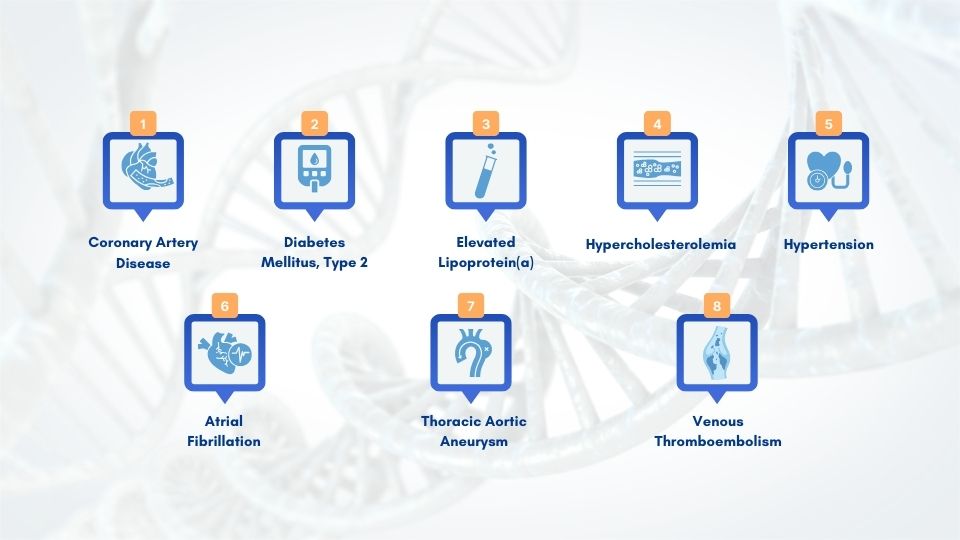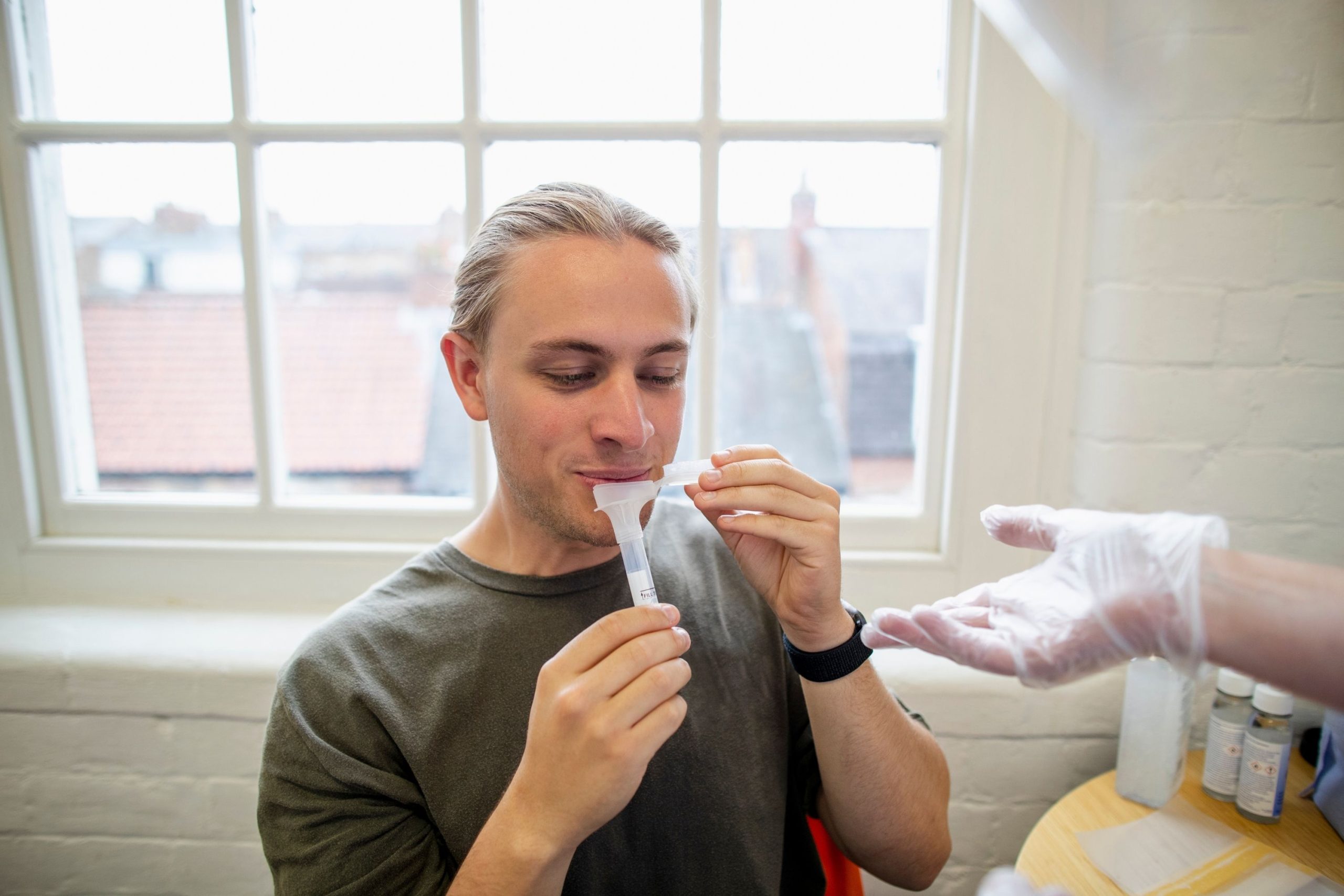Polygenic Risk Test – Cardiovascular
Simple DNA Saliva Test To Uncover Your Inherited Risk For 8 Common Cardiovascular Conditions


What Is A Polygenic Score?
- Everyone has small genetic differences, called variants.
- These variants can affect the risk of developing certain diseases.
- A polygenic risk score (PRS) combines the effects of millions of genetic variants to estimate your disease risk.
- While each variant has a small effect, their combined impact can be significant.


Who Should Take This Test?
- This may include people:
- Seeking personalized strategies for cardiovascular prevention
- With a family history of cardiovascular conditions
- With limited or unknown family history
- Who developed CAD despite lacking traditional risk factors
- Who have developed a condition without having traditional risk factors.
Why PRS for Cardiovascular /Cardiometabolic Matters
The Polygenic Risk Score (PRS) for cardiovascular conditions is a revolutionary genetic test that helps identify your inherited risk of common cardiovascular conditions.

Single comprehensive test covers 8 cardiometabolic conditions
Enables targeted lifestyle and medical prevention
Access to cutting-edge precision cardiology programs
Identifies genetic risk decades before symptoms. Finds high-risk individuals missed by standard screening
How It Works - Step By Step

Performed in cooperation with Avigena’s partner Laboratories and delivered by Avigena.
Results are ready in 4 to 8 weeks, giving you time to act early and make informed decisions.
Order Now.
Along with your personalized risk report, eligible patients receive a complimentary virtual session with an Avigena genetic counselor. We’ll explain your results and help you explore practical steps to reduce your risk.
Ask your doctor about the PRS test for coronary artery disease or contact us to learn more.
Your DNA can guide your prevention.
